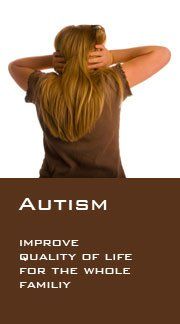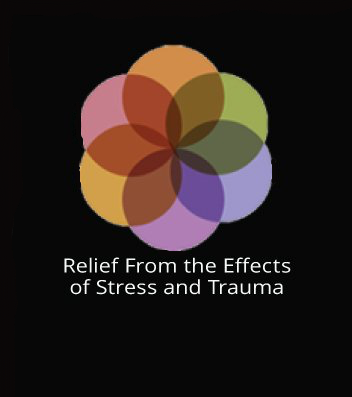Autism
Adult Autism

Can Fight or Flight Therapy help in autism?
Life with autism is stressful, and additional stress typically makes matters significantly worse. The same is true of being stuck in fight-or-flight.
It should be no surprise then, that the symptoms of being stuck in fight-or-flight, can in some ways resemble those of autism. The inability to handle stress, the overwhelm, the startle and sensitivity to their environment, the constricting of their visual and mental worlds, just to name a few.
The bottom line is that most autistics are probably getting a 'double whammy.' Their autistic symptoms are worsened simply because their natural response to stress triggers similar or aggravating symptoms. That raises the stress level, creating a vicious cycle of stress and aggravated symptoms.
The question begs to be asked, what would life look like if we could reduce just one of those 'whammies?' How might the whole family benefit?
Here's how Fight or Flight Therapy
helped one family:
Testimonial
Adult autism
We were referred to Dr. Tessler after an auto accident, but we had no way of anticipating just how much his Fight or Flight Therapy
would help our 32 year old autistic daughter, and improve our family's quality of life, as well.
What was fascinating was how Dr. Tessler's diagnostic testing explained many of our daughter's symptoms and behaviors that we thought we'd live with forever. For example, we learned why her eyes darted around avoiding eye contact, why she was so easily overwhelmed by stress, and why she was so irritable, reactive and easily startled.
In just 3 weeks, the changes were huge. Our daughter was much calmer. The tonic vibration that seemed to perpetually encompass her was dramatically less. She was much easier for us to be around. She was not as irritable or obsessive, which used to last for hours. Her body was less torqued, less wound, less tight. Her eyes seemed brighter and she was starting to make better eye contact. Suddenly she could tolerate music playing, which she had never been able to do since birth.
By 6 weeks her ability to focus and concentrate had markedly improved. She was now reading books cover to cover. She was less reactive, less argumentative, and starting to express herself better, including offering perceptive insights into the world around her.
Her ability to maintain eye contact steadily improved which helped her socially. She even stopped biting her fingernails, which had been forever torn and chewed. Family friends commented that interactions with her were more enjoyable, and more adult.
I must add that our daughter typically disliked and resisted going to doctors, but not so with
Dr. Tessler. He created a calm soothing environment that allowed her to feel safe and comfortable. That helped a lot. She really liked Dr. Tessler and never complained about doing her light therapy or going in for office visits.
Ultimately, over the several months of her therapy, it was clear to us that everything was better. Everything good was better, and everything bad was better.
Not only had we seen direct benefit from Fight or Flight Therapy, but by relaxing her nervous system, it made our daughter more receptive and capable of change. This created the foundation and spring board for other therapies to start working.
We are ever so thankful for Fight or Flight Therapy
and how it changed our lives.
Mother of autistic adult
The Fight or Flight
Questionaire
Is Flight or Flight Therapy right for you?
These area a sampling of symptoms common to people stuck in fight-or-flight.
How many symptoms do you have?
You might be surprised, or maybe you will confirm what you already suspect.
How many symptoms do you have?
You might be surprised, or maybe you will confirm what you already suspect.

